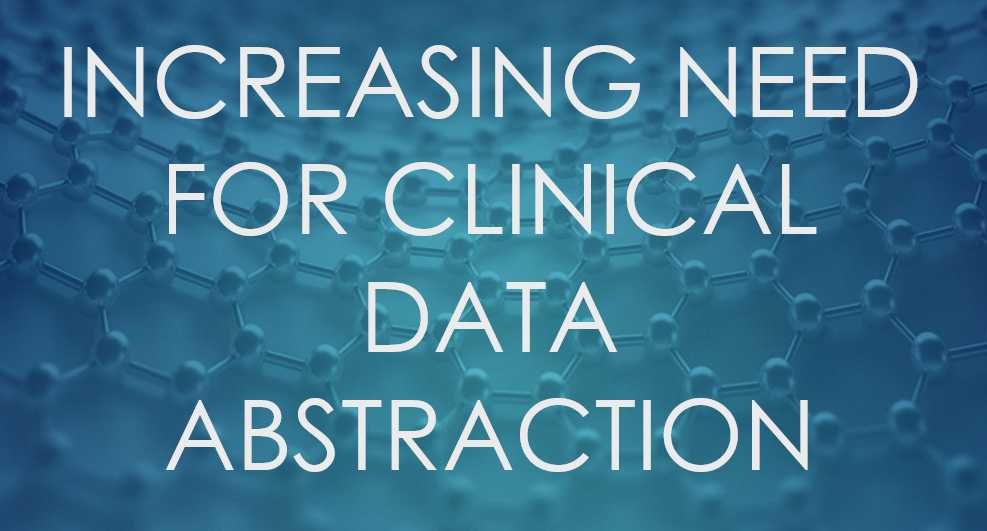How Data Abstraction Supports Clinical Research?
Clinical data abstraction refers to extracting important information from patients’ charts and entering it into a predefined structure. This structured data is a vital component of the healthcare sector as it enables several essential operations, including research, quality, and reporting functions. This article reviews how data abstraction supports these major components of the healthcare system. […]

how data abstraction supports clinical research
Clinical data abstraction refers to extracting important information from patients’ charts and entering it into a predefined structure. This structured data is a vital component of the healthcare sector as it enables several essential operations, including research, quality, and reporting functions. This article reviews how data abstraction supports these major components of the healthcare system.
Facilitating Quality Improvement Initiatives
Data abstractions enable the analysis of clinical data to improve areas of concern within the healthcare facility. By organizing patient data in a manner that is convenient for analysis, abstraction enhances quality assessment, culminating in practice changes based on evidence. This process assists in the creation of specific projects that focus on improving patient experiences and outcomes. It also becomes easier for healthcare systems to gauge the effectiveness of new initiatives based on quality metrics derived from abstracted data and identify which areas still require focus to enhance clinical performance.
Enabling Evidence-Based Medicine
It must be remembered that Evidence-Based Medicine (EBM) is primarily based on clinical data that is accurate and comprehensive. Data abstraction helps in this regard, as it identifies the essential information from patient records for research purposes. Clinicians can then use this standardized data to test hypotheses and use it to evaluate the effectiveness of treatments with the goal of modifying the clinical practice guidelines. By making data more robust through abstraction, the researcher is provided with the needed evidence to further medical science. This consequently results in improved patient care that is grounded in scientific principles.
Efficient Reporting and Compliance with Regulatory Requirements
Healthcare organizations in the U. S are required to gather and report different categories of clinical information to the state and federal authorities as a form of proof that the healthcare entity is adhering to the quality and safety laws and regulations. As clinical data abstraction provides a clear and fast route to several categories of standardized data, it makes regulatory reporting a much easier process. It guarantees that the healthcare organization can gather and report all the right metrics that are linked to quality and safety of care, as well as performance indicators set by legal frameworks such as HIPAA and PPACA. Observing these reporting requirements also increases an organization’s credibility and responsibility for the patients’ experiences and satisfaction.
Supporting Population Health Management
At the population level, clinical data abstraction has a significant role in decision making to address health issues. By integrating patient information across various facilities and specializations, pertinent population health information can be gained about diseases, dangers, health conditions, factors that influence them, and so on. These insights enable healthcare agencies to move from the model of volume to that of value. It is then possible to embark on preventative and targeted care activities based on the health needs and issues that are facing given patient categories. It is these population health analytics that hold all the stakeholders to account when engaging in the real business of seeking to enhance the well-being of the community.
Identification of Patient Groups for Clinical Trials
An important application of data abstraction in clinical research is in the process of selecting patients for a trial. Through automated identification of patient data in electronic health records, investigators can productively specify and enroll patients with requisite characteristics into research studies. It also allows for patients with certain conditions, demography, or treatment history to be highlighted or selected for recruitment to clinical trials. Furthermore, data abstraction results in improved knowledge of the characteristics of individual patients and their responses to treatment within these groups, thus resulting in better assessment of trial results. This targeted approach not only speeds up recruitment but also increases the quality of the study since the selected population groups are as diverse as the patient population.
Conclusion
In summary, data abstraction creates standardized and structured clinical data, which is the foundation of the most important healthcare operations, such as quality improvements, clinical research, regulatory reporting, and population health. Data abstraction makes patient data accessible for analysis and for use in practicing evidence-based care that is also safer and relevant to the community’s health. This illustrates the broad utility and impact of data abstraction for the healthcare system.
